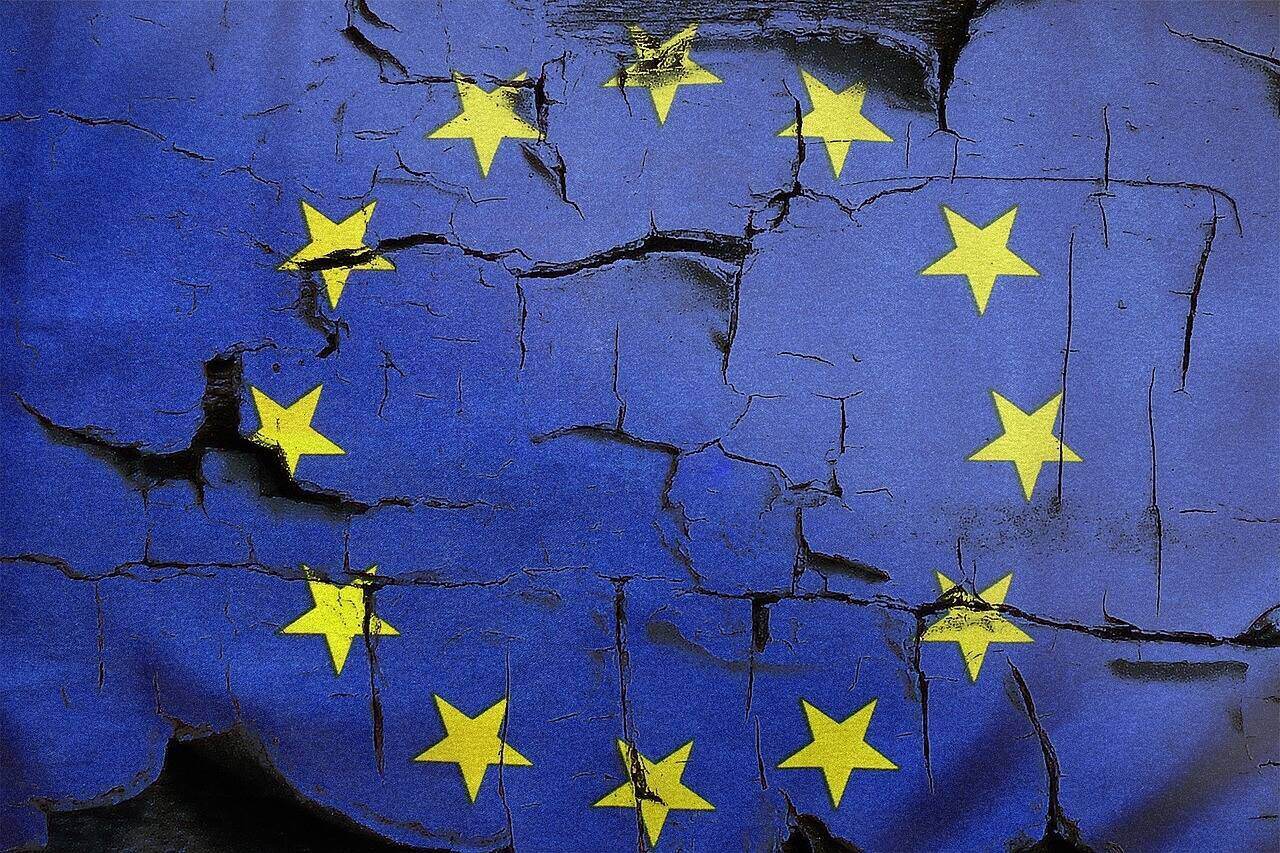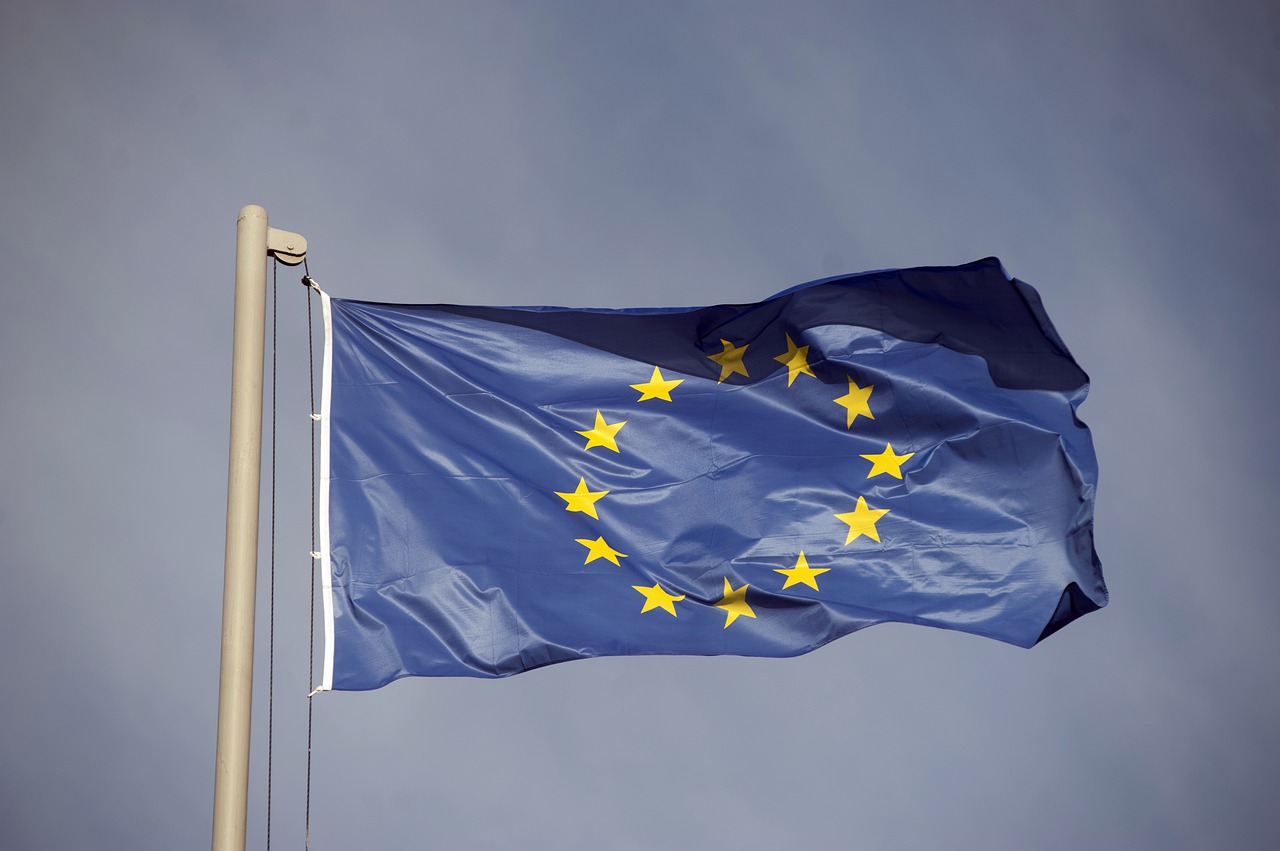Jobbik MEP Gyöngyösi: Could this be the end of the European Union?

Remarks from Jobbik MEP Márton Gyöngyösi:
As 9 May approaches, the anniversary of Robert Schuman’s Declaration always reminds us to reflect on such questions as where the European integration started out from and how far it got over the past seven decades as well as where the EU is going right now. The issue is more important than ever, because there are more and more angry voices, and not only among the often criticized populists but among the leading Western European political stakeholders as well, which suggests that if we are not careful, we may easily have to witness the failure of the European project.
Typically enough, we politicians often like to believe the current challenge to be the greatest, the most dangerous and most complex, too. In our defence, the past is already final, we know the outcome, so we can pass quick judgements, since we are armoured with the full knowledge of the events. However, the present and the future are always unknown and the information is never enough.
So I don’t want to sound the alarm bells or overestimate the threat, but I have to say that Europe either demonstrates unity and solidarity, or the EU as we know it will disappear.
Let me discuss a few facts and correlations in the hope that Europe will be able to cope with the challenges, just as it has always been, fortunately.
The idea of a united Europe was conceived in a difficult historical period: our continent was in ruins and the Soviet occupation of the Central European countries prevented any integration whatsoever. In fact, Europe was facing the impending doom of a third world war. Schuman and his partners “had to cook with what they had”. That’s how six European states began their cooperation. Of course, there were some more ambitious plans to implement the cooperation of European nations, as demonstrated by the series of later enlargements and reforms that helped the EU gain its current form.
The community always faced great difficulties, but always overcame the obstacles, because its members had the faith and the will to bring the European idea to success.
This faith and will seems to have run out or somewhat faded by now. On the surface, everything may appear to be all right: the new European Commission was even dreaming of a geopolitical role until very recently, while the European institutions are operational. Under the surface however, one warning sign is followed by another: the stagnation of the enlargement process, the scuttling of the Spitzenkandidat system, the appearance of populists and yes, I put the advocates of the two-speed Europe idea in this category, too. Why?
- Jobbik MEP Gyöngyösi: Redrawing the borders of Balkan underway?
- Jobbik MEP Gyöngyösi: Is there a chance of Palestine – Israel peace?
I don’t want to waste too many words on populists in this post. I’ve written a lot about them and if you are interested in politics, you are very well aware of the problem already. The promoters of the two-speed Europe idea are a more complicated case. They declare and believe themselves to be pro-Europe on the grounds that they urge for an ever closer cooperation. Except that they don’t want to involve everyone in it. According to the two-speed Europe advocates, when it comes to populists, you don’t need to engage them in a political battle. Instead, you should just avoid them and deepen the integration without them and their countries. If they don’t want to participate in this integration, they can stay in the periphery.
There are some obvious reasons why such a thought may seem justified: the Western European frustration and the realization that the integration of the former Communist countries was a failure despite the Euro billions poured into it. Another reason may be the annoyance of having to deal with the scheming of autocrats like Orbán and wasting precious energy on engaging in debates with obviously sabotaging political forces.
However, I am convinced that the two-speed Europe, no matter how attractive it may seem in Western Europe, is a bad idea.
A two-speed EU would clearly mark the fall of true Europeanism, demonstrating that the reason why we were unable to build a united and cooperative Europe of welfare and solidarity was not a foreign occupation or an unfortunate geopolitical environment, but the lack of will on the Europeans’ part. Considering how laboriously Europe moves in the international arena, such an act would drive the final nail in our continent’s coffin: who would want to negotiate with a community that is unable to solve its own problems? Beside the remote regions and world politics, there’s another area where Europe would lose all its weight if it chose the two-speed road: the Western Balkans and the Eastern Partnership countries, with their already diminished hopes, could hardly expect anything from a community that simply shakes off its poorer and more problematic members. Their already remote chance of an EU integration would truly drop to zero. That’s exactly what Russia, Turkey or China are waiting for, right at the borders…
In return for all these losses, what benefits could be enjoyed by the block that wishes to keep the accelerated integration within the confines of a small circle? None, because the EU’s current institutional structure would still remain.
In fact, the two-speed Europe would just duplicate an already complicated system.
Furthermore, if there is a way to leave the populists and the “problematic” states to their fate, why stop there? Why not squeeze out some other countries that eventually prove too sluggish for the fast lane?
I think the two-speed Europe idea will ultimately get us back to where Europe started out from in the 1950s: a fundamentally divided and fragmented continent, but this time because that’s how the Europeans wanted it. It would be a gargantuan failure and a disavowal of everything the EU’s founding fathers believed in.
I stand for a united Europe that shows solidarity for its members, and I believe in a Europe that truly aims to achieve equality for its citizens, eliminate societal gaps, help the weak and, of course, get rid of populist and selfish political tendencies. Regardless how attractive and pragmatic their packaging may seem.
Source: Gyöngyösimárton.com



The best thing that could happen for all Europeans is the implosion of the Globalist E.U. The planet does not need a one world government. The planet needs people to retain their cultural identity and values not forgeting their past as the globalist would have people do.
The EU should only be and “economic block”.
Two points to make. The idea that EU has poured billions into the former Soviet states is highly misleading. The states were promised cohesion funds in exchange for opening up their markets to EU firms. So any discussion about how much cohesion funds have been spent should be balanced out by how much the other EU countries have made from easy access to the ex Soviet states.
Second point. Why does Marton never properly explain why a EU state controlled at the centre would be beneficial to everyday folks? Its obvious to me that cooperation between EU states is beneficial but to have a central overlord is far too similar to either the Nazi state or the Soviet state, neither of which were good for the ordinary citizen.
Those in Hungary pushing the EU line are only doing this because they have the same political stance as the current EU set up. What would they do if, for example, the Germans voted in AfD, Le Pen was president of France and Salvini was in charge in Italy? And how would they feel if those three political parties had control of the EU institutions?
As it is obvious to ALL CLEAR-SIGHTED INDIVIDUALS that the EU’s plans (OR LACK THEROF) and ideology will ultimately cause it to fail totally.
As we (Hungarians) have elucidated a number of times: We have joined the EU for trade.
WE have had ENOUGH of outside powers trying to SUBJUGATE Hungary in the most objectionable ways.
If there is no respect for a country’s sovereignty, distancing oneself is the only alternative.
The EU as it is may be a last chance for economically desperate countries but how long can those countries better off financially are able to CARRY those who are unable to take care of themselves.
On top of it all these countries have been overrun by migrants an EU policy encouraged by NON EUROPEAN financially powerful elements.
It may have been a beautiful dream but it turned into a nightmare.
When total strangers try to interfere and control the faith and meddle in the internal affairs of a country, the alarm-bells should start ringing.
When there are enormous numbers of “planted” individuals in our country for a simple purpose, to create as much disharmony, havoc and uncertainty as possible.
Gyöngyösi is articulate and in many respects reflects the general views of the majority of Hungarians.
IT IS A GREAT PITY HE JOINED THE “LEFT”AND HIS PARTY IS KNOWN FOR THEIR ANTISEMITISM.
His place is with the Orban government and his country, not helping to demolish what we held so dearly for so long.